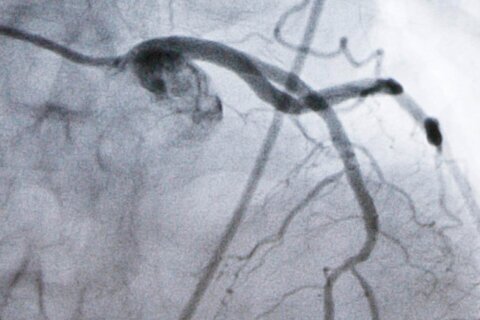WASHINGTON — It has been called the Y2K of health care and some have raised concerns that it could result in patients’ medical claims being delayed, processed incorrectly or even rejected.
As of Oct. 1, insurance claims must be submitted using a new, much more complex set of medical codes, known as ICD-10.
“The implementation of ICD-10 has been a cause of great anxiety among health care providers and hospital systems across the country,” says Dr. Stephen Michaels, Chief Operating Officer and Chief Medical Officer at Medstar St. Mary’s Hospital in Leonardtown, Maryland.
Michaels says the switch is going well at Medstar, but the change has gotten pushback from groups including the American Medical Association. While Medicare is allowing a one-year grace period for claims using the old codes, AMA President Dr. Steven Stack says in a statement that “physicians will be forced to follow [a] patchwork of disparate coding standards” among insurers, which will create “confusion and inconsistency in claims processing.”
Michaels says he believes the impact on hospital patients will be more minor.
“Clearly there will be a couple of glitches here and there, but I don’t anticipate widespread difficulties,” he says. However, he maintains that “patients should certainly be vigilant about any irregularity in their bills.”
The changes are meant to allow the collection of more data on health conditions and causes, and the intense specificity of the new codes has gotten lots of attention.
Among the incidents that can now be coded onto insurance forms are being sucked into a jet engine (V97.33) or having your three-wheeled motor car crash into another three-wheeled motor car (V32.0). Several codes deal with accidents involving spacecraft (V95.40-V95.49). Perhaps the most head-scratching entry is a “burn due to water-skis on fire” (V91.07).
Locations are also important in the new system. It can be noted if symptoms begin at the opera house (Y92.253) or in a swimming pool at a prison (Y92.146).
There are medical codes for a bite from a squirrel (W53.21), horse (W55.11), cow (W55.21), pig (W55.41), sea lion (W56.11), parrot (W61.01), macaw (W61.11) and duck (W61.61). Being “struck” by some of those animals or having “other contact” with them warrants a separate code.
Even Michaels, an orthopedic surgeon, is not sure of the importance of distinguishing between the bite of a dolphin (W56.01) and that of an orca (W56.21) when treating an injury.
“Maybe the size of the teeth … I can’t really think of where there would be a big difference,” he says. “I have not had the opportunity to treat somebody with a large mammal or fish bite.”
Going by the new codes, those working on this article experienced headaches (G44.2) at a radio or television station (Y92.59).








